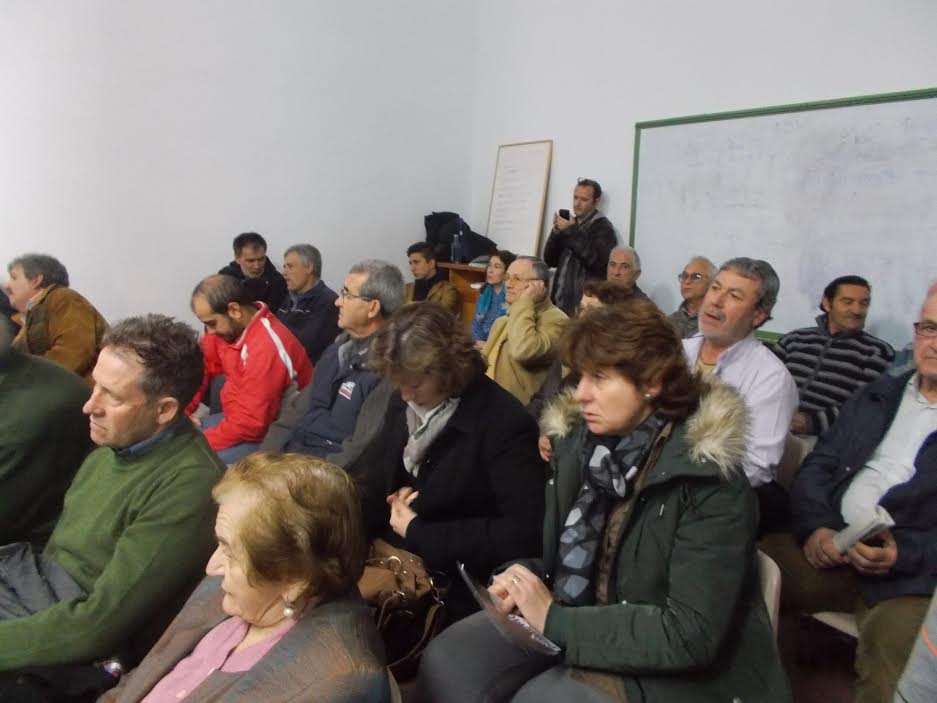Freya Marshall Payne (in Hoyos, Caceres, Spain)
This is my first holiday home from university, and I’ve arrived back into a little Spanish mountain village of crooked tile roofs and curving white streets right in the middle of the presidential elections.
The Spanish people vote tomorrow and it feels like their choice carries far more weight than it has done in years – perhaps in all the time this fragile democracy has existed since the death of brutal Dictator General Franco in 1975.
Since the first elections in 1976, Spain has had a two-party system where the only viable options are the present PP or Partido Popular (right-wing ‘People’s Party’) and the PSOE or Partido Socialista Obrero Español (left wing ‘Party of Socialist Workers of Spain’).
Tomorrow’s elections are expected to change that: the anti-austerity party Podemos (‘We Can’) which was only founded in March 2014, is expected to shatter the two-party system, coming a close third or perhaps even second. Either way, the leading party (the PP) is only polling at 25% and it looks like Podemos will be at the negotiating table when coalition governments are discussed.
Podemos has been the parliamentary vehicle for unrest and change which people want to see in this country. Economic crises combined with the PP’s brutal programme of cuts and austerity have given way to rising misery in Spain, and with that, calls for change.
Podemos alone seems to be answering, and in big cities like Madrid and Barcelona there have been huge rallies where famous speakers like Owen Jones have offered their backing. Yesterday Jones said: “This election matters – not just for Spain, but for Europe too.”
And it does. Podemos represents not just a different type of anti-austerity politics, but a different attitude. I recently went to a rally myself, although this one was in a small town, and felt that one of the campaign videos screened told me a lot about Podemos’s attitude.
The video, which showed the successes of Podemos mayors in Madrid and Barcelona, was subtitled in English – a clear statement of looking outwards towards the rest of the world, something Spanish politics often doesn’t do, and an attempt to get a wider audience. The second thing was the smiling: the video addressed how important communication and smiling is. Contact with real people, then, is important.
Podemos started in a protest movement, the domain of cosmopolitan young people and the politically active. The rally I went to on Wednesday showed that things have changed, and a wider group of people support the party and will be voting for them tomorrow.
The Podemos rally was in Coria, the fourth biggest town in the province of Caceres, with around 11,600 inhabitants. It was a cold Wednesday and darkness was already falling at 6 o’clock when the event started. Outside, children were playing with purple balloons carrying the Podemos slogan ‘a country with you, Podemos’.
I didn’t expect many people to turn up, especially when an organiser told me that, since Podemos isn’t a traditional party, the meeting would be ‘informal’ and held in a small side room. To my surprise, over 50 people came and there was standing room only.
Podemos has already done well against the odds: starting as a development from 2011’s 15M protest movement which saw people taking to the streets calling for the end to the two-party system and wanting ‘real democracy now’, the party was only founded less than two years ago.
It swept to surprise success in the European elections in May 2014, winning 7.98% of the vote, and since then has rested at a steady 20% in the opinion polls, in fact polling higher than the PP and PSOE this summer.
Yet still, I remember a negative atmosphere about radical politics and Podemos here in the countryside…When I was 14 and at the local secondary school there were mass student protests in other areas of the country as a response to the 15M.
Although I organised my own conference with student speakers to discuss what we wanted out of our education, and a sit-in in solidarity with those in Madrid and Valencia, very few people in the village showed any sympathy towards the ‘indignados’ who occupied Madrid’s main square and started the 15M movement.
I remember people of all generations saying the 15M would achieve nothing politically, worrying that they were irreligious and that nothing would change. But something has definitely shifted since then. Podemos came out of the 15M, and in last-minute polls they’re in third place with 20.1% just below the PSOE’s 20.8%. The PP may still be in the lead with 25%.
At that recent rally in Coria, the thing I found most surprising of all was that the audience was overwhelmingly elderly. There was only one young voter: a man in his mid-twenties.
Elderly people in the rural ‘España profunda’ as it’s called – the ‘deep’, backward, agricultural Spain – are historically the most afraid to express political opinion because of their experience of dictatorship. These are the people who go to church, dressed in corduroy suits and neat dresses, every Sunday. But here they were at a Podemos meeting.
They seemed to be drawn in not only by Podemos’s big campaign ‘let’s save pensions!’ but also by the attitude Podemos represents. One woman said that she’d had a pension rise of 50 centimos since the PP government came into power in 2012. She nodded fervently when the speaker, Amaia Sanchez, a candidate for the Caceres provincial congress, said ‘we’re sick and tired of a democracy of privilege’.
This, I think, is what is winning the more traditional in Spanish society over to Podemos: the deep commitment to the ideals of democracy after 40 years of Francist repression.
Podemos’s slogan is ‘a time of clarity’ as the campaign video shown at the event in Coria illustrates: a discussion between two Podemos candidates synchronised with light falling onto people’s faces as the Podemos logo was cut from the shadows.
This sense that Podemos can lead us out of the darkness of the corruption, poverty and hopelessness which has enveloped Spain over the last few years is what will motivate a wider group of people to vote Podemos tomorrow.



